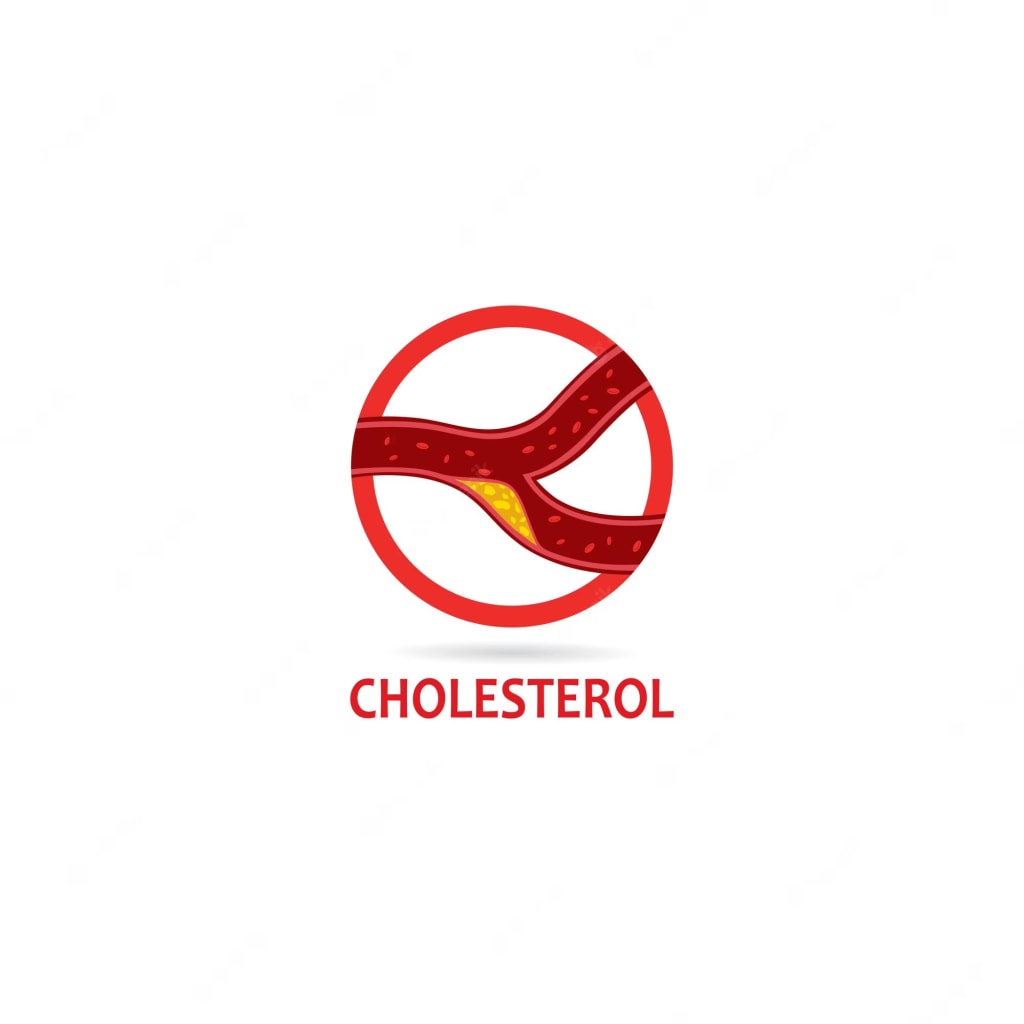
Cholesterol is a waxy, fat-like substance found in every cell of our body, which plays a vital role in the functioning of the body. It helps build cells, produce hormones, and create vitamin D. However, when the levels of cholesterol in the blood become too high, it can lead to a buildup of plaque in the arteries, which can cause heart disease, stroke, and other serious health problems.
Many people believe that eating fats leads to high cholesterol levels in the blood, which can cause heart disease. However, research has shown that not all fats are created equal. Some types of fats, such as saturated and trans fats, can increase cholesterol levels in the blood, while other types, such as monounsaturated and polyunsaturated fats, can actually reduce cholesterol levels and improve heart health.
Saturated fats are found in animal products such as meat, butter, cheese, and cream, as well as in some plant-based oils such as coconut oil and palm oil. When consumed in excess, saturated fats can increase the levels of LDL or "bad" cholesterol in the blood, which can contribute to the development of heart disease.
Trans fats are a type of fat that is created through a process called hydrogenation, which turns liquid vegetable oils into solid fats. Trans fats can be found in fried foods, baked goods, and snack foods such as chips and crackers. They can increase LDL cholesterol levels in the blood and decrease HDL or "good" cholesterol levels, which can also contribute to heart disease.
On the other hand, monounsaturated and polyunsaturated fats, which are found in foods such as nuts, seeds, fatty fish, avocados, and plant-based oils such as olive oil, can actually improve heart health by reducing LDL cholesterol levels in the blood.
Studies have shown that replacing saturated and trans fats with monounsaturated and polyunsaturated fats in the diet can lower LDL cholesterol levels and reduce the risk of heart disease. For example, a study published in the American Journal of Clinical Nutrition found that replacing saturated fats with monounsaturated and polyunsaturated fats can lower LDL cholesterol levels by up to 10 percent.
In addition to their cholesterol-lowering benefits, monounsaturated and polyunsaturated fats also have other health benefits. For example, omega-3 fatty acids, which are a type of polyunsaturated fat found in fatty fish such as salmon and sardines, have been shown to reduce inflammation in the body and improve brain health.
It is important to note that while monounsaturated and polyunsaturated fats can improve heart health, they should still be consumed in moderation as they are high in calories. It is recommended that they make up about 20-35 percent of the total daily calorie intake.
Incorporating more monounsaturated and polyunsaturated fats into the diet can be easy. Here are some tips:
Choose fatty fish such as salmon, sardines, and tuna instead of meat for protein sources.
Use olive oil, avocado oil, and other plant-based oils instead of butter or margarine.
Snack on nuts and seeds instead of chips or crackers.
Add avocado to salads, sandwiches, and smoothies.
Choose whole foods such as fruits, vegetables, and whole grains instead of processed foods that are high in trans fats.
In conclusion, not all fats are created equal, and eating the right types of fats can actually reduce cholesterol levels in the blood and improve heart health. By replacing saturated and trans fats with monounsaturated and polyunsaturated fats in the diet, people can reduce their risk of heart disease and improve their overall health.
When it comes to dietary fat, what matters most is the type of fat you eat. Contrary to past dietary advice promoting low-fat diets, newer research shows that healthy fats are necessary and beneficial for health.
When food manufacturers reduce fat, they often replace it with carbohydrates from sugar, refined grains, or other starches. Our bodies digest these refined carbohydrates and starches very quickly, affecting blood sugar and insulin levels and possibly resulting in weight gain and disease. (1-3)
Findings from the Nurses’ Health Study (4) and the Health Professionals Follow-up Study (5) show that no link between the overall percentage of calories from fat and any important health outcome, including cancer, heart disease, and weight gain.
Rather than adopting a low-fat diet, it’s more important to focus on eating beneficial “good” fats and avoiding harmful “bad” fats. Fat is an important part of a healthy diet. Choose foods with “good” unsaturated fats, limit foods high in saturated fat, and avoid “bad” trans fat.
“Good” unsaturated fats — Monounsaturated and polyunsaturated fats — lower disease risk. Foods high in good fats include vegetable oils (such as olive, canola, sunflower, soy, and corn), nuts, seeds, and fish.
“Bad” fats — trans fats — increase disease risk, even when eaten in small quantities. Foods containing trans fats are primarily in processed foods made with trans fat from partially hydrogenated oil. Fortunately, trans fats have been eliminated from many of these foods.
Saturated fats, while not as harmful as trans fats, by comparison with unsaturated fats negatively impact health and are best consumed in moderation. Foods containing large amounts of saturated fat include red meat, butter, cheese, and ice cream. Some plant-based fats like coconut oil and palm oil are also rich in saturated fat.
When you cut back on foods like red meat and butter, replace them with fish, beans, nuts, and healthy oils instead of refined carbohydrates.
Read more about healthy fats in this “Ask the Expert” with HSPH’s Dr. Walter Willett and Amy Myrdal Miller, M.S., R.D., formerly of The Culinary Institute of America
References
1. Siri-Tarino, P.W., et al., Saturated fatty acids and risk of coronary heart disease: modulation by replacement nutrients. Curr Atheroscler Rep, 2010. 12(6): p. 384-90.
2. Hu, F.B., Are refined carbohydrates worse than saturated fat? Am J Clin Nutr, 2010. 91(6): p. 1541-2.
3. Jakobsen, M.U., et al., Intake of carbohydrates compared with intake of saturated fatty acids and risk of myocardial infarction: importance of the glycemic index. Am J Clin Nutr, 2010. 91(6): p. 1764-8.
4. Hu, F.B., et al., Dietary fat intake and the risk of coronary heart disease in women. N Engl J Med, 1997. 337(21): p. 1491-9.
5. Ascherio, A., et al., Dietary fat and risk of coronary heart disease in men: cohort follow up study in the United States. BMJ, 1996. 313(7049): p. 84-90.
6. Hu, F.B., J.E. Manson, and W.C. Willett, Types of dietary fat and risk of coronary heart disease: a critical review. J Am Coll Nutr, 2001. 20(1): p. 5-19.





Comments
There are no comments for this story
Be the first to respond and start the conversation.